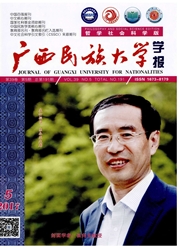

 中文摘要:
中文摘要:
根据对四川省雅安市硗碛藏族乡田野调查的资料,分析了嘉绒藏族对父亲的"骨"与母亲的"肉"的概念,以及基于这一概念形成的"亲"的民俗观念和由此产生的血亲禁婚制度,从而解释了这一概念下人们对亲属关系实践的规则。认为20世纪70年代以来,人类学在对亲属制度整体把握的研究中,非常重视从身体观出发,讨论不同社会中人类的生殖行为的观念差异,以及由此形成的女性怀孕、生产的文化观念等,以此作为理解不同社会对"亲"的定义和亲属关系实践的规则。
 英文摘要:
英文摘要:
Based on the fieldwork data collected from Qiaoqi Tibetan Township in Ya'an City of Sichuan Province,the paper analyzes the concepts of father's "bone" and mother's "flesh" of the Jiarong-Tibetan Ethnic Group and their traditional ideas about kinship based on these concepts,as well as the consequent systems prohibiting marriages between blood relations. Furthermore,the author explains how people practice kinship relation under the guidance of these concepts. Since 1970s,anthropological studies on kinship system have been attaching great importance to the different attitudes towards human reproductive behaviors in different societies from the perspective of body view and the cultural ideas of female pregnancy and childbirth. This study has been taken as the basis to understand different definitions of kinship and different practice of kinship relations in different societies.
 同期刊论文项目
同期刊论文项目
 同项目期刊论文
同项目期刊论文
 期刊信息
期刊信息
